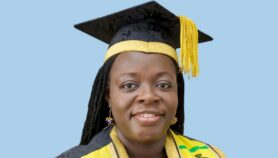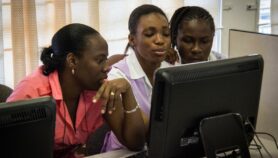By: Linda Nordling
Send to a friend
The details you provide on this page will not be used to send unsolicited email, and will not be sold to a 3rd party. See privacy policy.
African research universities need a unified voice — but club membership could be tricky, writes Linda Nordling.
Last month, four of the world’s leading university groupings met in China to discuss challenges facing research universities around the world.
Around the table were research university associations from Australia, China, Europe and the United States. But Africa — a small, but growing contributor to global research — was not there.
The group that met in China extended an open invitation to other associations of research universities ‘of similar standing’ to join their ranks.
But Africa won’t be able to attend future get-togethers unless its top universities band together to form something such as an African League of Research Universities (let’s just call it ALRU to save space).
And deciding who should be in such an august group will prove tricky, and could be a challenge to deep-seated values of African university education.
Elitism revisited
Gaining access to international discussions about research is reason enough to hurry up and form an African league of research universities.
But the problem of setting up an ALRU is that it puts up a wall in a continent where such walls have negative historical connotations.
A handful of universities — twenty or so perhaps — will be accepted into the ALRU ranks. But the majority that will be excluded from the group may be branded as second-class institutions.
“The group that met in China extended an open invitation to other associations of research universities ‘of similar standing’ to join their ranks. But Africa won’t be able to attend future get-togethers unless its top universities band together to form something such as an African League of Research Universities”.
Linda Nordling
In South Africa, differentiation of higher education institutions is a hot issue, as it brings back the bad memories from the divided education system of the apartheid era.
And elsewhere in Africa, differentiation in higher education may clash with post-independence ideals of egalitarianism. A move to stratified education may sound too much like an endorsement of elitism and selfishness — although in practice, such divisions are commonplace across the continent.
In other words, the act of saying that there are such things as research universities in Africa is problematic — as it implies that not all universities are the same.
However, this problem pales into comparison with the challenge of agreeing on the composition of an ALRU.
Counting on success
Any selection process would need to look at some minimum criteria for universities to qualify. But while there are many ways of measuring the research activity of a university, almost all of them are flawed.
One simple measure is to look at the number of research articles published by academics at the university, as well as the number of PhDs it trains in a given year. This gives you a good idea of the academic production of the university; however it doesn’t help identify quality from quantity.
A more sophisticated measure is calculating how often other researchers cite the articles as this gives a rough idea of the ‘uptake’ of a piece of research originating at a university.
And using these metrics as the selection criteria for our fictional ALRU throws up a new problem of representation. Any list of twenty universities ranked by such indicators would be heavily weighted towards South African institutions.
The case for representation
At this point, some readers might ask: ‘So what if they are all South African? If that is where the strongest research universities on the continent are, so be it.’
My answer is this: One of the central points of having an African league of universities would be that it could bring together different points of view.
This diversity is, in my view, more important to regional associations like these than picking the best — especially given that the metrics used to measure university quality are disputed anyway.
An African league, where membership is capped for individual countries at, say, two or three universities apiece, is not unheard of internationally. This is how the League of European Research Universities, which attended the meeting in China, is composed.
There is an alternative, and that is for South Africa’s universities to form a national league of research universities. But, for reasons touched on earlier in this article, this is problematic politically.
Another vote against a national league is that it would wield less power at international meetings than one representing an entire continent.
Political help required
A diverse, country-capped grouping would not be self-organising — it would create too much infighting among universities about the membership. In fact, some early discussions about an African league conducted in the lead-up to a workshop on PhD production in Africa co-organised by the Carnegie Corporation in New York in Pretoria, South Africa last month have already run into these sorts of flare-ups between institutions.
Instead, the steer will need to come from African governments, in particular government agencies dealing with higher education issues.
These political discussions involved will no doubt throw up their own problems. Just as an over-representation of South African universities is not desirable, so is the inclusion of sub-par universities to fill a geographic or political hole.
The final composition will be a compromise, and a fraught one at that. But Africa needs to navigate these deep seas in order to win a place in important global discussions.

Journalist Linda Nordling, based in Cape Town, South Africa, specialises in African science policy, education and development. She was the founding editor of Research Africa and writes for SciDev.Net, Nature and others.
This article has been produced by SciDev.Net's Sub-Saharan Africa desk.














